How to make laundry smell better – experts share their 10 super scenting secrets
These simple tips guarantee fresh and fragrant laundry every time you wash
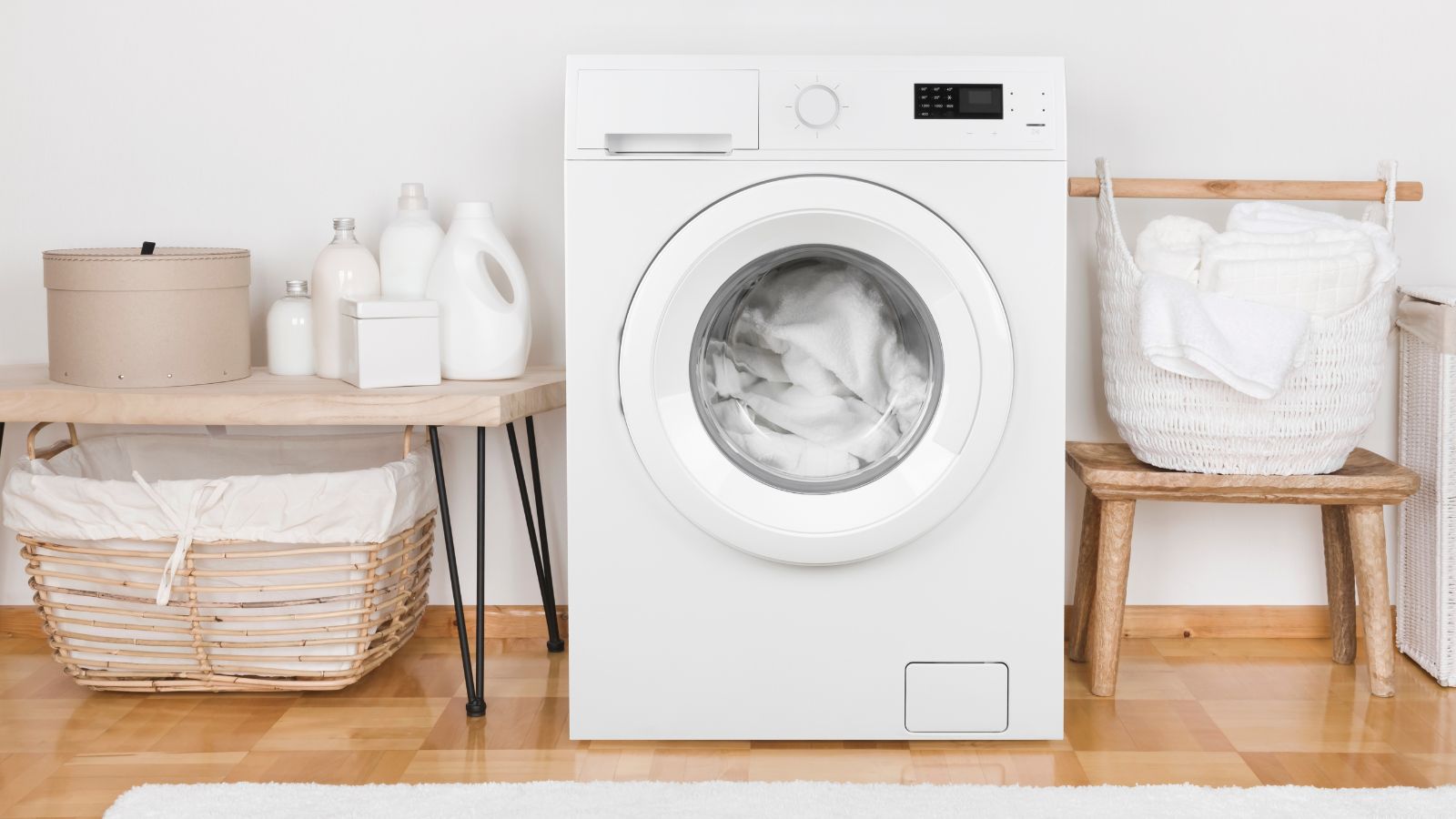
- 1. Avoid using excessive products
- 2. Pre-soak with baking soda
- 3. Reduce time between wearing and washing
- 4. Rinse soiled items twice
- 5. Don't let clothes sit
- 6. Use white vinegar
- 7. Use a dehumidifier
- 8. Clean your washing machine
- 6. Line-dry when possible
- 10. Leave your washing machine open
- Does fabric softener make your laundry smell better?

Chiana Dickson
Freshly dried laundry is one of the small pleasures of everyday life, but lingering odors and musty smells can ruin it. So how do you make laundry smell better?
From the products you use to how you dry your clothing, there are several things you can change when doing your laundry that affect the final scent – no matter which laundry products you use.
These are the ten laundry tips experts always follow to achieve fresh-smelling laundry every time.
How to make laundry smell better
Just because you are making an effort to preserve your laundry's fresh scent doesn't mean you need to sacrifice your laundry hacks to save time. More often than not, small, simple changes to your laundry routine will help improve the freshness of your clothes and linens.
With that in mind, these are the simple swaps that will make the biggest difference.
1. Avoid using excessive products
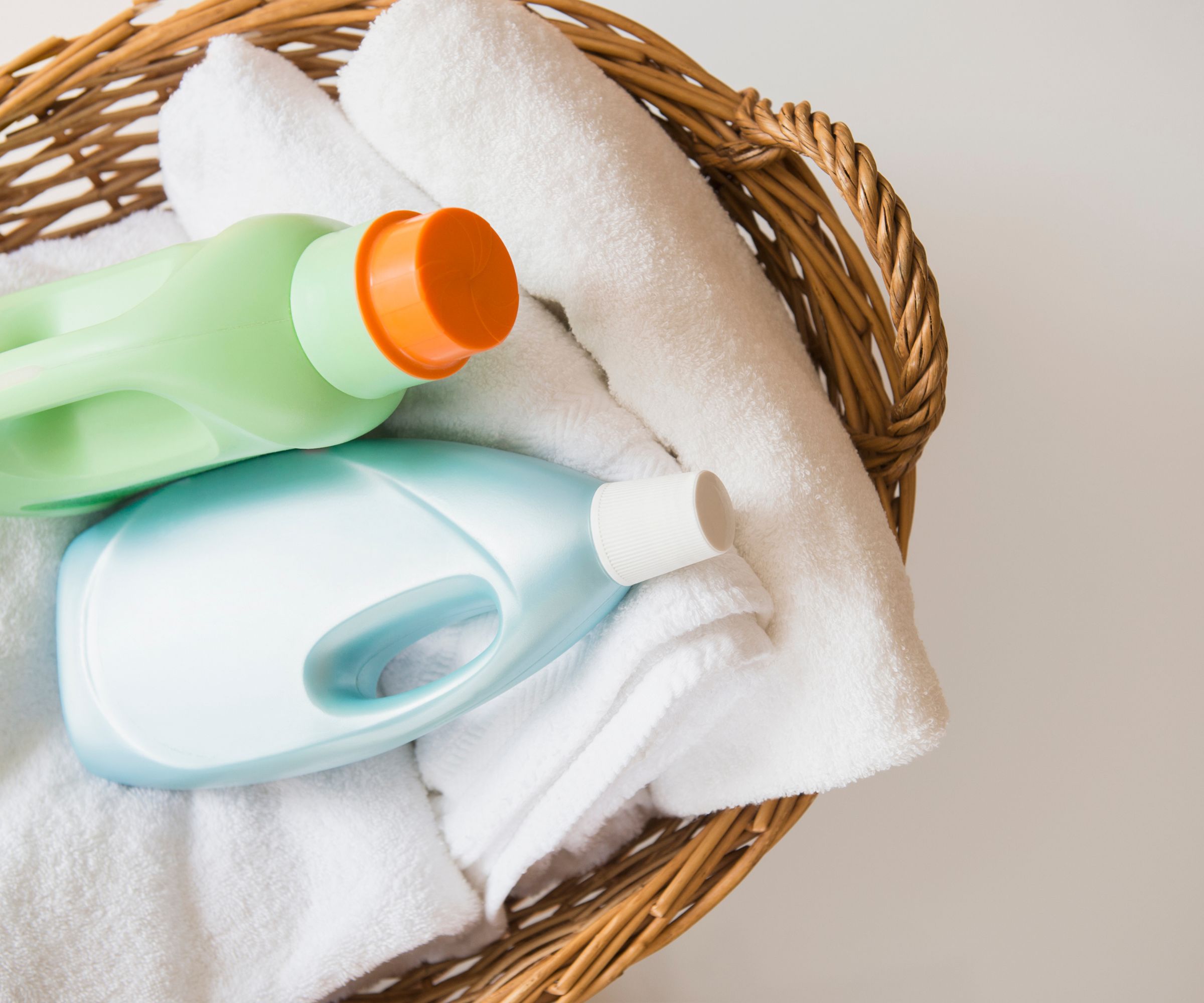
It might make sense that adding more of the nice-smelling products will make your laundry smell nicer, but the opposite is usually true.
Corey Tournet, laundry expert and owner of Laundry Alternative Inc. explains, 'While you shouldn’t wash clothes without detergent, cutting back on how much product you use can have a big impact on how your laundry smells.'
‘Excessive detergent and fabric softener leave residues that over time create bad odors and attract dirt and grime,’ he adds. They can also leave behind detergent stains on your freshly laundered clothing. Always stick to the manufacturer's instructions and work according to the size of your laundry load to ensure it is thoroughly rinsed away.
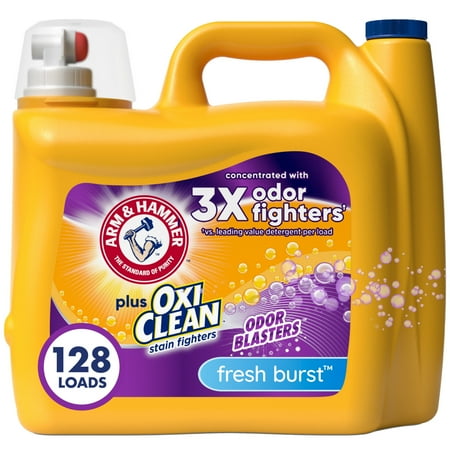
We recommend using an all-purpose detergent, such as ARM & HAMMER Plus OxiClean Odor Blasters Liquid Laundry Detergent, which fights stains and banishes odors, without being too harsh, leaving behind a fresh scent.
2. Pre-soak laundry with baking soda
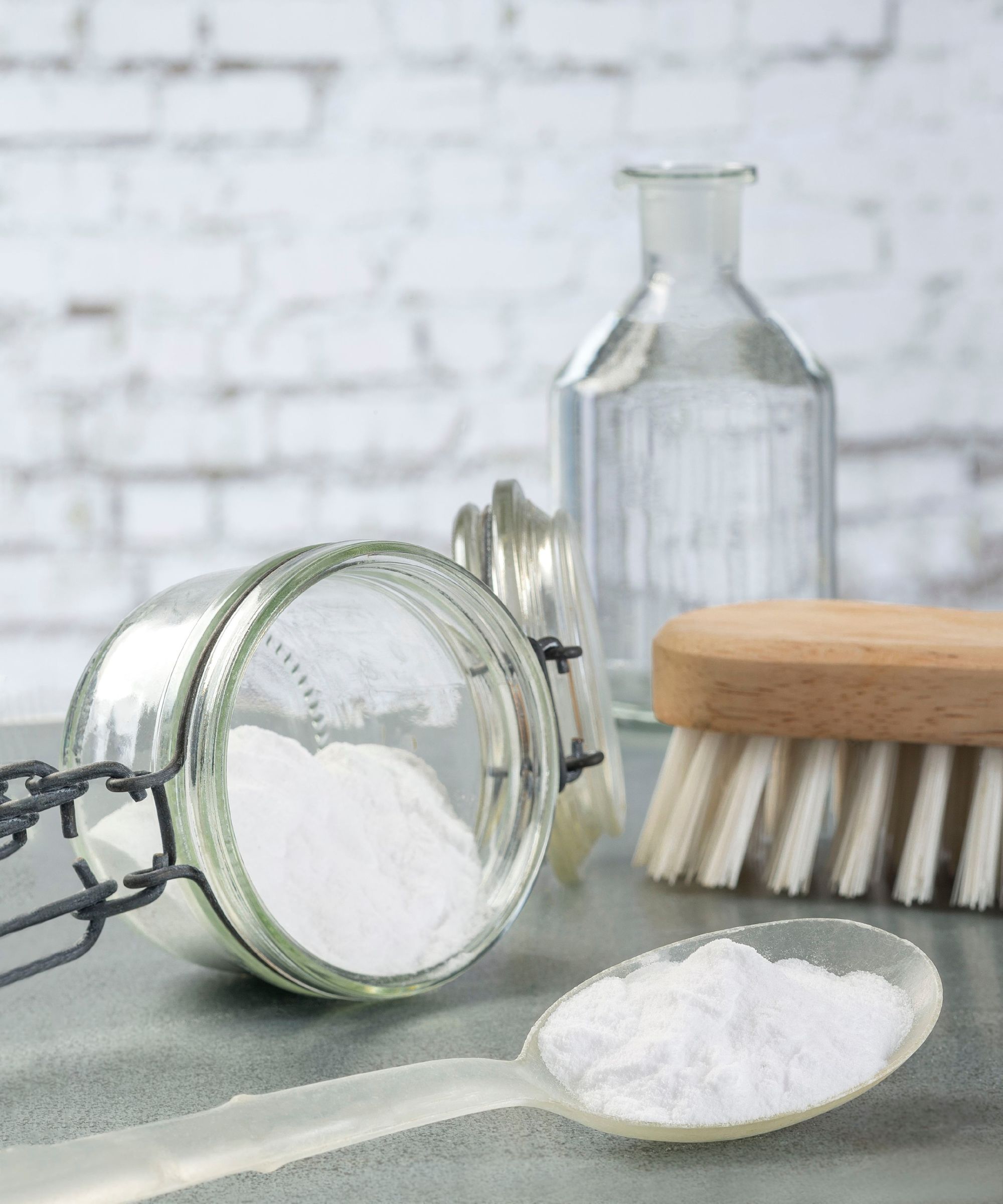
There are many things you can clean with baking soda around the home, and you can use it to make your laundry smell fresh, too.
'This is a game-changer, especially for that workout gear or those towels,' says James King, operations manager at DeluxeMaid. Much like laundry sanitizers, which take care of germs that regular detergents might miss and are added to the rinse cycle, a baking-soda pre-soak can be used for the same result.
'Dissolve about half a cup of baking soda in a bucket of water, and soak your washing for 30 minutes to an hour,' advises King. 'After soaking, wash your clothes as usual, and they'll come out smelling fresher and cleaner.'
Our dedicated guide on how to use baking soda in laundry details more expert-approved ways to use the pantry staple in your routine.
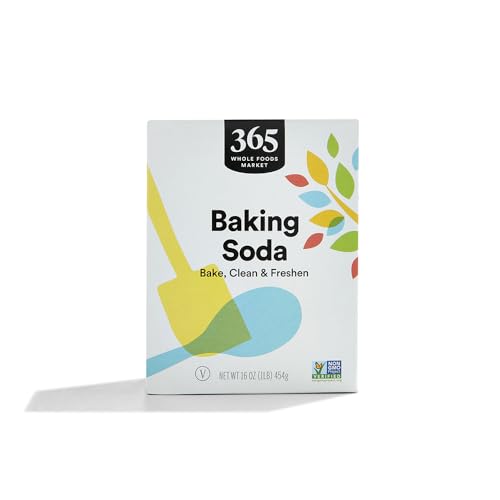
This baking soda has hundreds of uses around the home, and can be used for baking, deodorizing, cleaning and freshening.
3. Reduce the time between wearing and washing
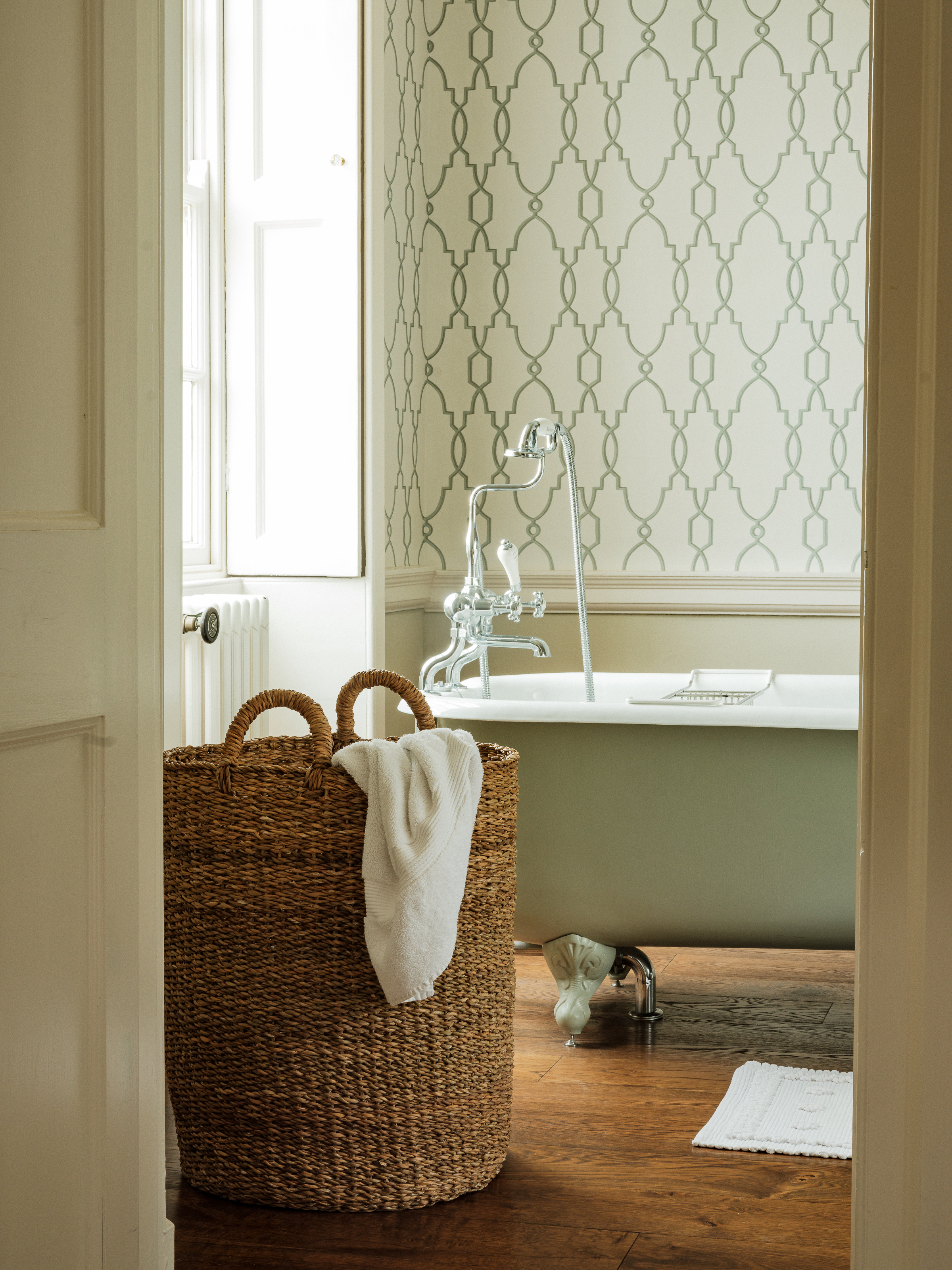
James Joun, laundry expert and COO and co-founder of Rinse says, 'If you want the best chance of removing odor residues and making your laundry smell nice, it is best to reduce how long your laundry is sitting in your laundry basket.'
‘This gives stains and odors less time to set and can also prevent mold, especially with moist or wet garments like athletic wear,’ he says. ‘Similarly, reduce the time between washing and drying. This is critical as the moist environment inside the washer promotes mildew growth.’
We recommend using the Downy Cool Cotton HE Compatible Rinse & Refresh Laundry Odor Remover and Fabric Softener available at Target, which helps to rinse away odor-causing bacteria trapped within fabric fibers, keeping them smelling fresher for longer in between washes.
4. Rinse heavily soiled clothes twice
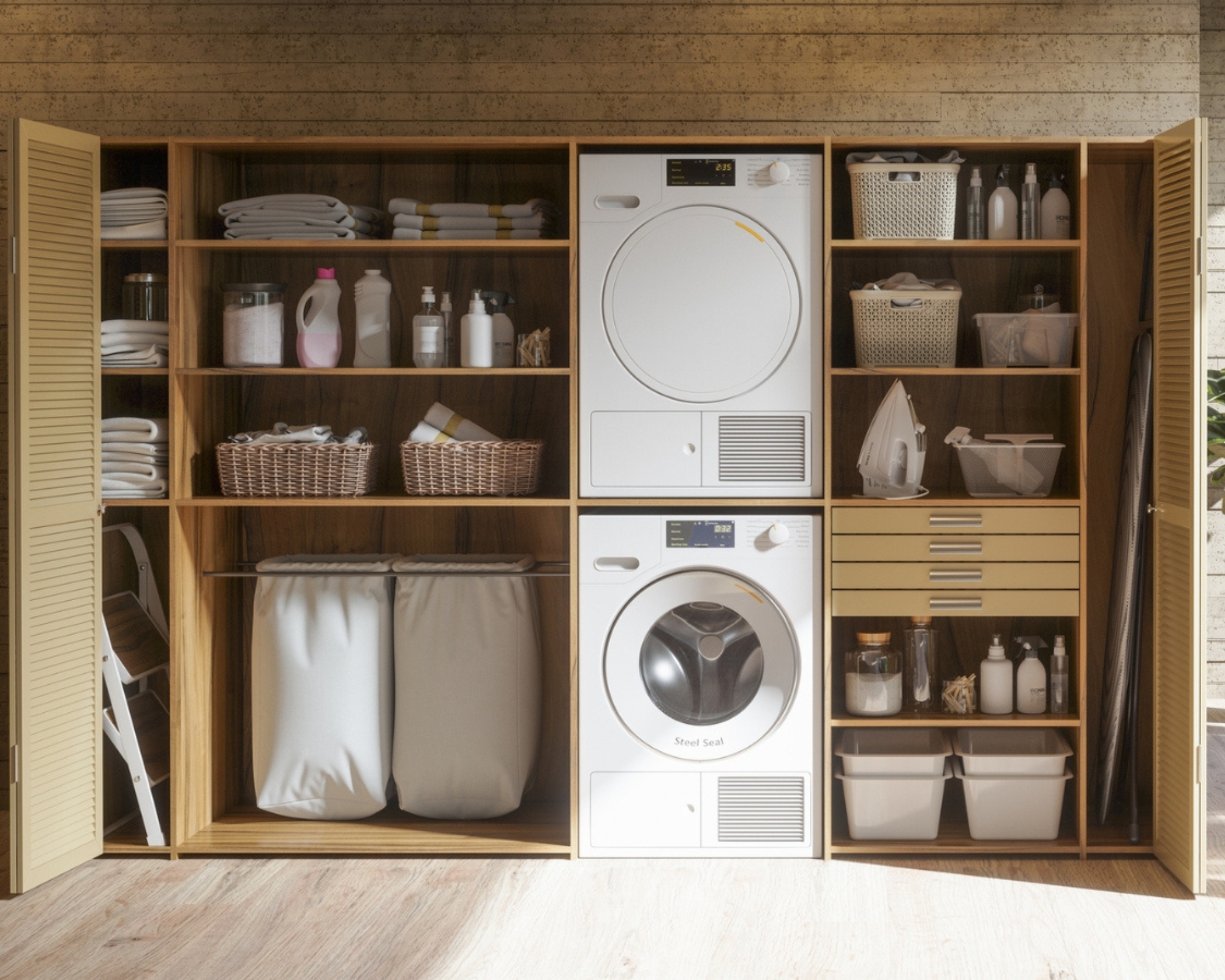
When you have heavily soiled items, such as muddy sports clothes or food-stained clothing, James King, cleaning expert, recommends rinsing them twice for guaranteed freshness.
'Sometimes, a single rinse might not cut it,' he explains. 'If you run another rinse cycle, all the leftover detergent, fabric softener, and grime will be completely washed away.
'Most modern washers actually have a double-rinse option, so it's super easy to do,' he adds. But, if yours doesn't, you can easily manually select a second rinse cycle after the initial wash.
If you're wondering whether hot or cold water is better for stain removal, it's almost always safer to opt for a cold wash, to avoid setting stains for good.
5. Don't let your clothes sit in your washing machine

Wondering if you can leave clothes in the washer overnight? 'Try to avoid your laundry sitting damp in your washing machine,' urges laundry expert, Corey Tournet. 'You should dry them as soon as possible. Ideally, no longer than one hour after the final spin.'
Similarly, if you are using a tumble dryer, take the clothes out of the dryer within an hour to prevent them from becoming musty. You can also use a few drops of essential oil for a dryer hack to add natural fragrance to your items.
6. Use white vinegar to remove bad odors
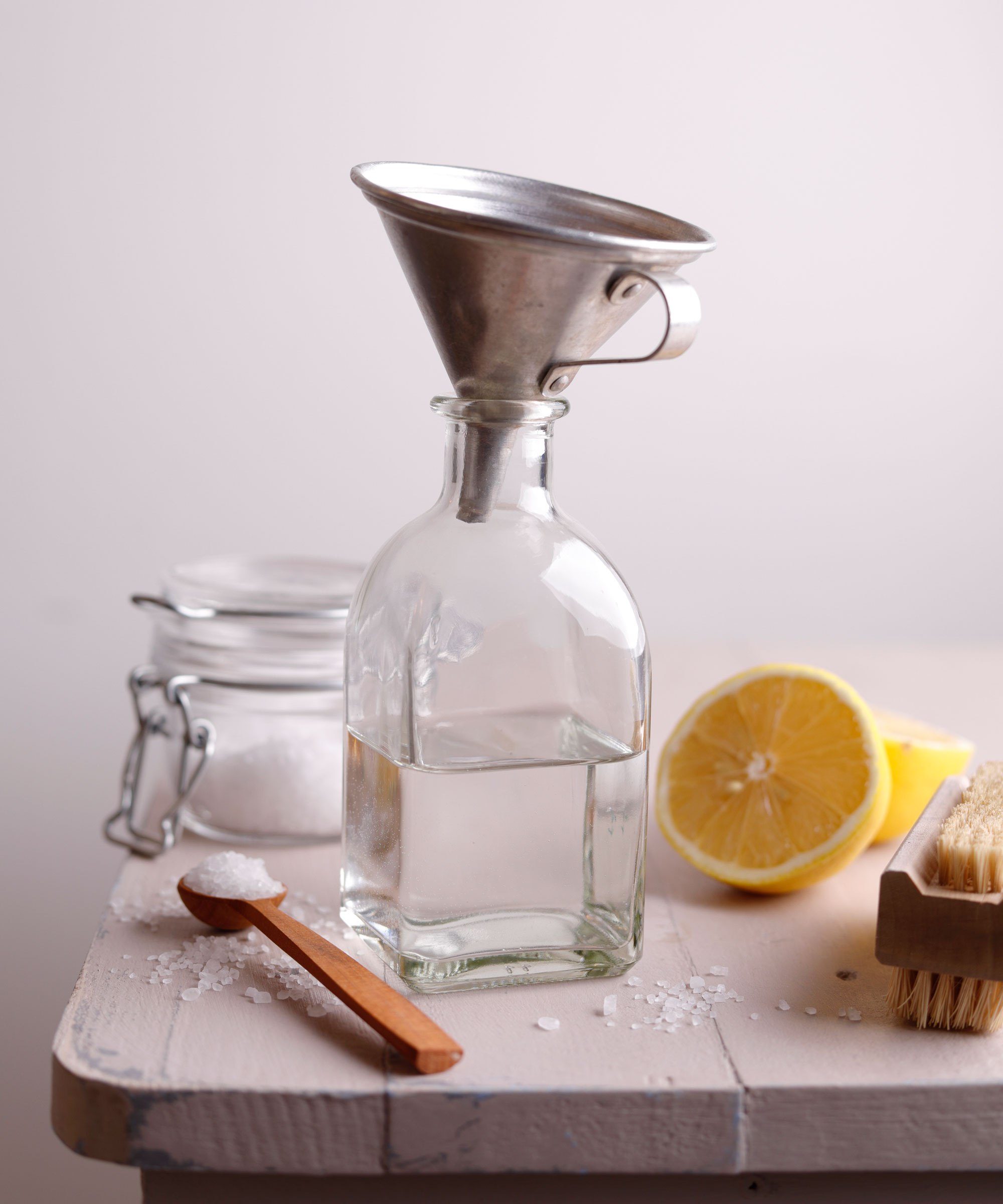
'Using white vinegar in laundry is another way to remove lingering odors and give your clothes a fresh scent without the need for chemicals – perfect if you are looking into green cleaning,' says Beth McCallum, cleaning expert at Oh So Spotless.
‘White vinegar is incredible for removing bad odors naturally. Add one cup of distilled white vinegar to your washing machine’s rinse cycle to remove fabric softener build-up and musty odors and help with softening fabrics. If you’re worried about the vinegary scent afterward, don’t fret! It will dissipate as your clothes dry.’
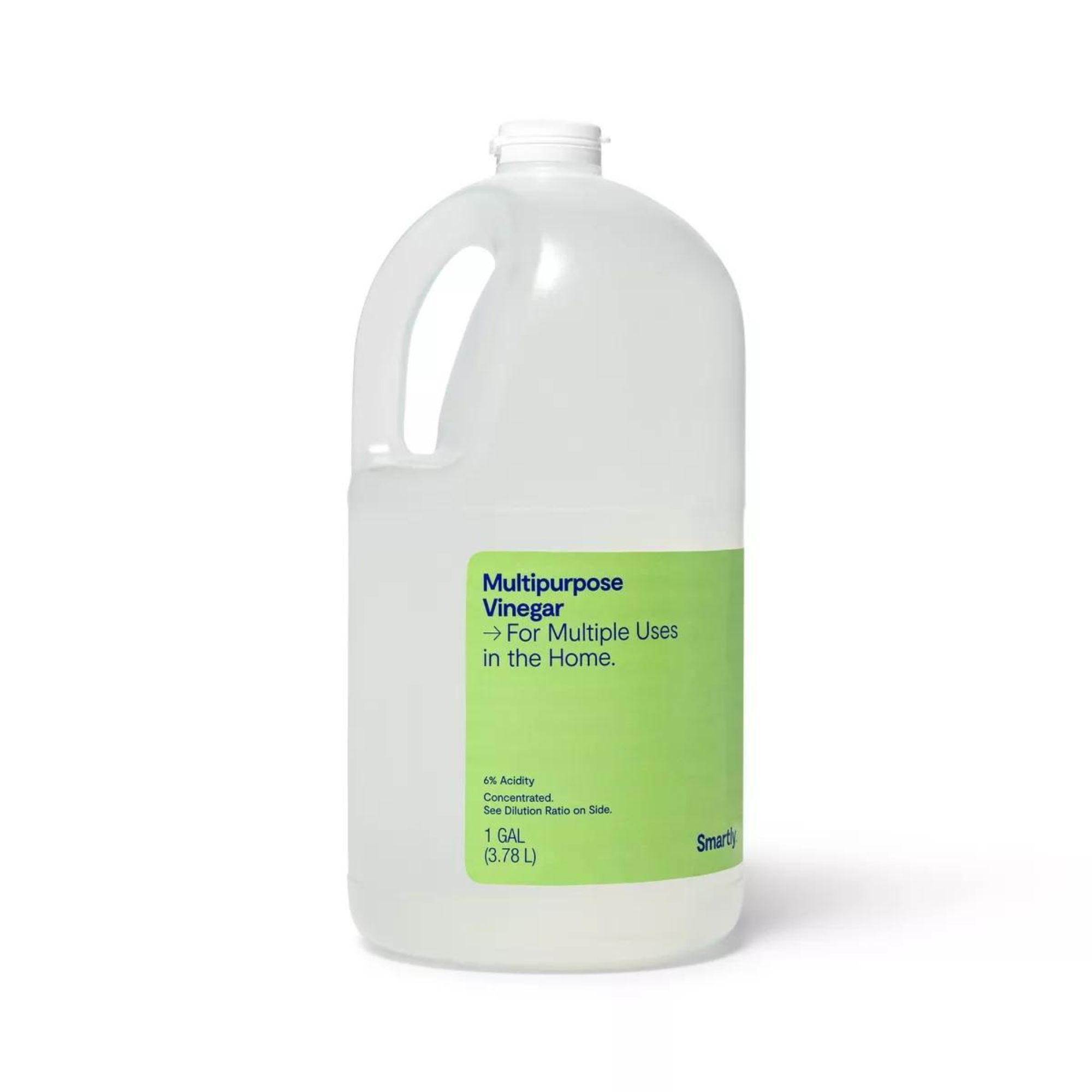
This vinegar can be used for household cleaning all around the home, as well as for laundry. As it's diluted to a 6% acidity it's strong enough to fight odors and keep your laundry smelling fresh.
7. Use a dehumidifier
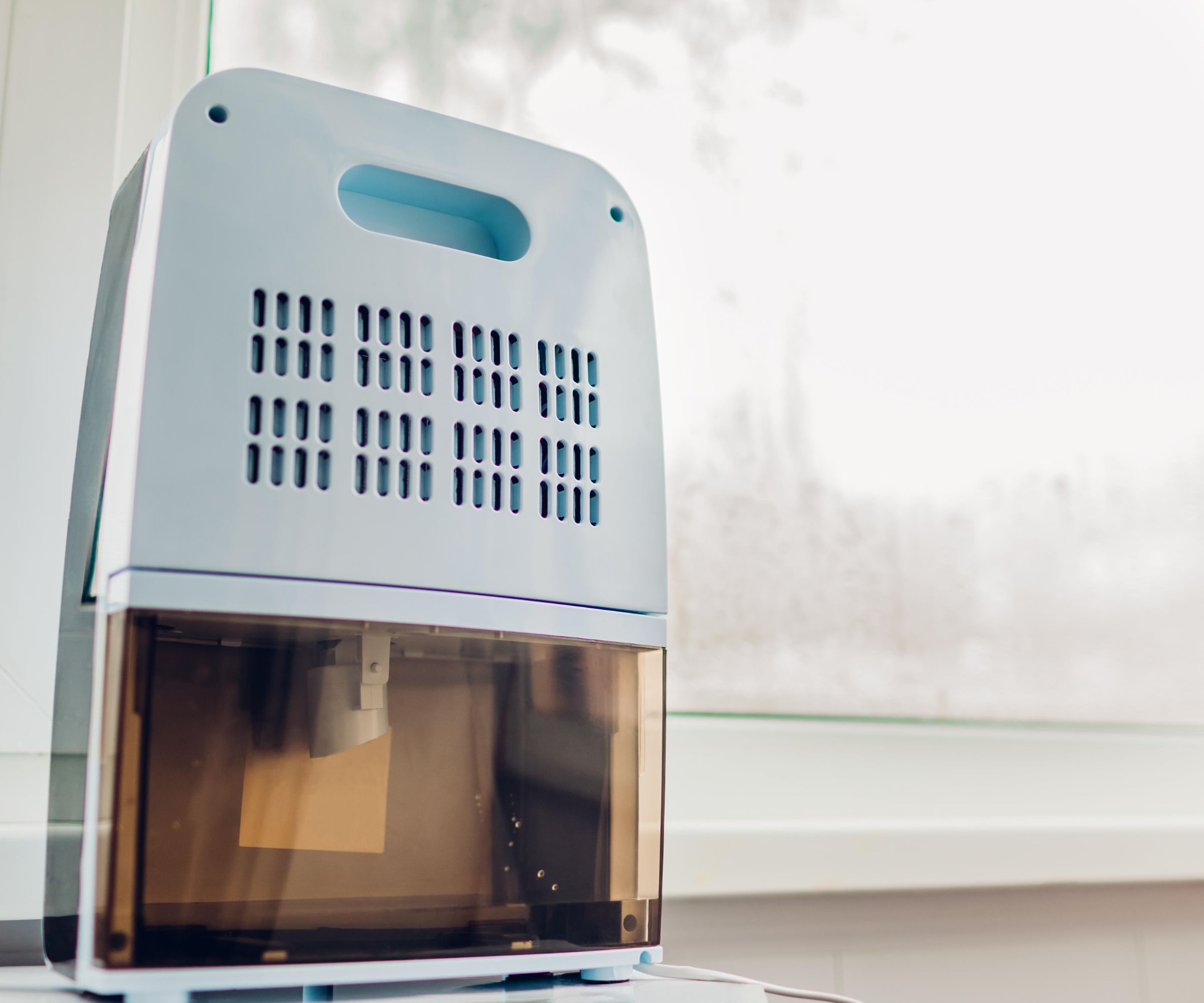
When drying laundry indoors, particularly in a small, closed space, a musty smell can often form on your freshly washed clothes.
'It's because of the lack of airflow and humidity,' explains James King, cleaning expert. 'To speed up the drying process, you can try using a dehumidifer placed below your clothesline or rack.' We recommend the Waykar Dehumidifier available at Amazon, which is highly efficient, durable, and portable.
This will also make your laundry smell better by helping to air out any smelling particles left on your clothing. Just remember to change the dehumidifier filter regularly.
8. Ensure your washing machine is clean

It is not just how you clean your laundry that affects its scent – cleaning a washing machine makes a big difference, too. To prevent mold and musty odors from building up in your machine, James Joun, laundry expert, recommends cleaning it regularly and performing preventative maintenance on your washer and dryer to keep it running as expected.
Using a dedicated washing machine cleaner such as OxiClean with Odor Blasters available at Target can help to deep clean the parts you can't reach and ensure lasting freshness. 'While it's running, you can take a damp cloth and wipe down the exterior, including the buttons and control panel,' says King.
You should also regularly remove mold from the rubber seal on your washing machine, which could contribute to musty odors.
9. Line-dry rather than tumble dry when possible
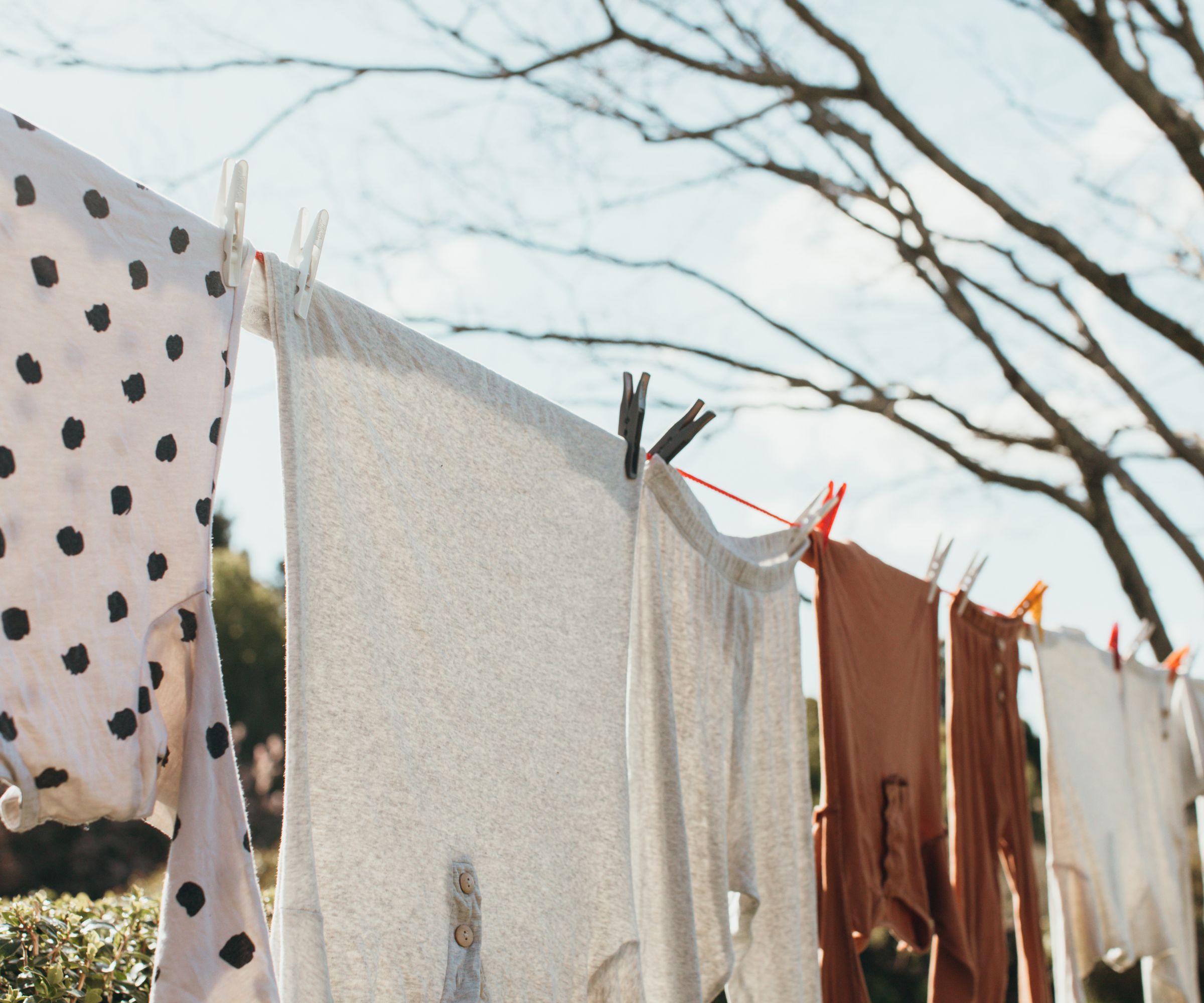
Although tumble dryers are the most common way to dry clothes, they are not the best for making clothes smell nice. Often, they can make fresh-smelling laundry smell musty, especially if things do not dry out quickly or fully.
The best way to dry laundry for a lasting fresh scent is to line dry on a sunny, breezy day. When outside conditions are not favorable, letting your laundry dry on an airing rack with a dehumidifier positioned beneath will emulate this line-dried freshness while also making a home smell nice.
'When you hang the clothes outside, the sun's UV rays naturally disinfect the fabric and keep your whites and colors bright, which is a win-win,' says cleaning expert James King. 'Plus, nothing beats that clean, crisp scent!'
10. Leave your washing machine open between uses
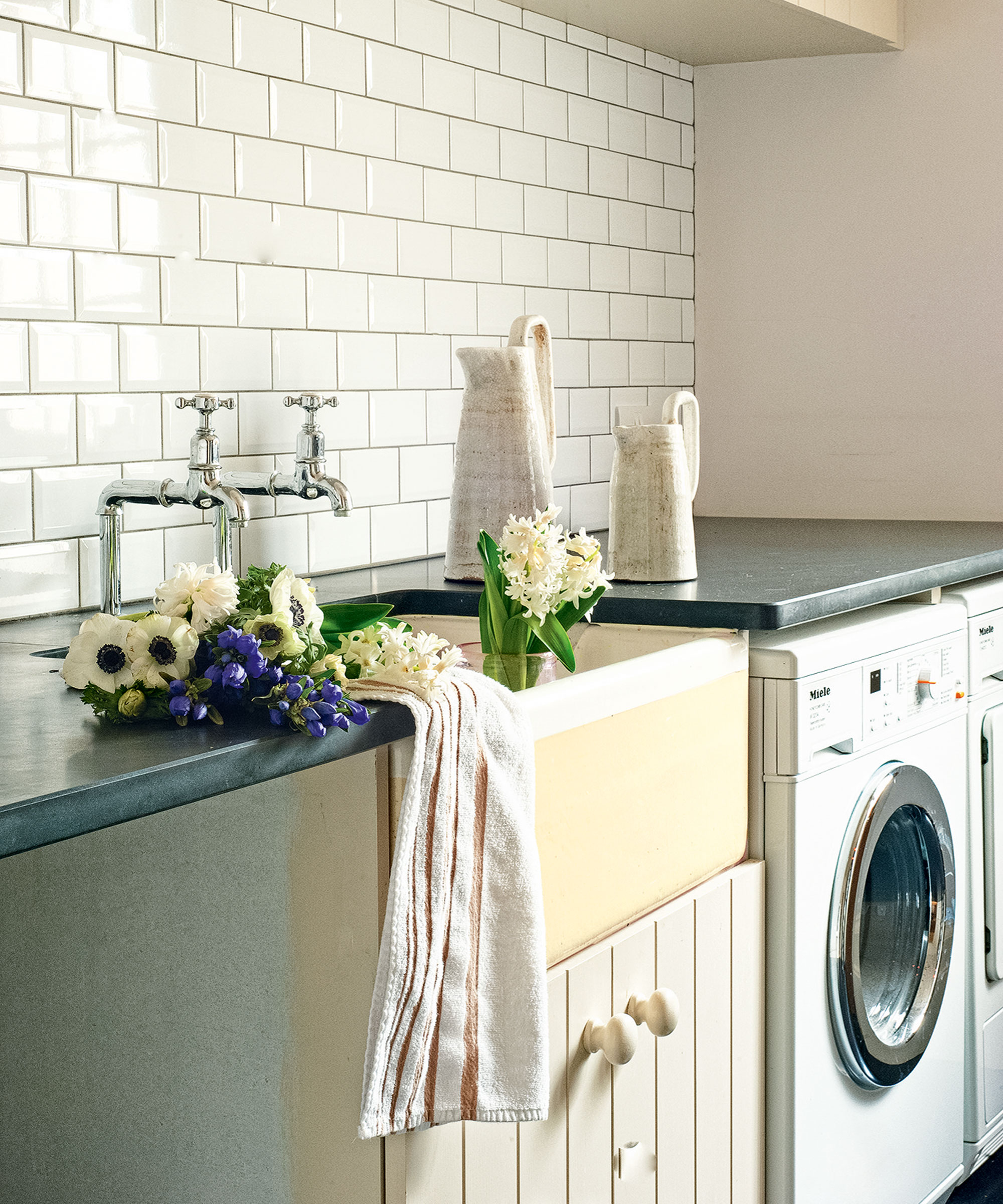
One of the most common washing machine mistakes we make regularly is closing the door after you take your laundry out. Closing the door and detergent drawer stops it from drying out and promotes the growth of mold and bacteria. Leaving the door open will allow it to ventilate. This has the knock-on effect of making your clothes cleaner and smell better.
FAQs
Does fabric softener make your laundry smell better?
Using fabric softener in laundry can help to add a long-lasting scent to clothes, while also making clothes softer and less wrinkled. You can also use in-wash scent boosters or a few drops of essential oil as a natural alternative.
Be aware, however, that using too much fabric softener can damage clothes, however, or even make them smell worse if it is not rinsed away properly. Check the laundry symbols on the garment's care tag to find out if it is safe for fabric softener. For example, most towels and some gym clothes can be damaged by softeners.
It is not just your clothes that will see the benefit of better laundry habits – it can have a knock-on effect on the rest of your home too. For instance, letting clothing air dry and cleaning the washer and dryer are two of the many things people with nice-smelling laundry rooms always do, so it's not just your laundry which will smell better – your whole home will.
Sign up to the Homes & Gardens newsletter
Design expertise in your inbox – from inspiring decorating ideas and beautiful celebrity homes to practical gardening advice and shopping round-ups.

Ottilie joined Homes & Gardens last year, after finishing a Master's in Magazine Journalism at City, University of London. With previous contributions in Livingetc and Motorsport Magazine, she produces content for the Solved section on the website, focusing on clever tips and tricks to keep your home beautiful, organized and clean. She also has an undergraduate degree in English Literature and History of Art from the University of Edinburgh, where she developed a love for inspiring interiors and architecture.
- Chiana DicksonContent Editor
-
 5 surprising but brilliant ways to clean with old socks – from perfectly buffing stainless steel to deterring pests naturally and more
5 surprising but brilliant ways to clean with old socks – from perfectly buffing stainless steel to deterring pests naturally and moreTackle dust in tricky corners, clean your mirrors and even banish bad odors with those rogue single socks
By Andy van Terheyden Published
-
 How to grow astilbe – expert advice on cultivating this shade-tolerant flowering perennial
How to grow astilbe – expert advice on cultivating this shade-tolerant flowering perennialShade-tolerant and pest-resistant - astilbe are hardy and tough perennials that can thrive in many settings
By Ellen Wells Published
-
 My cheap dehumidifier makes easy work of air drying laundry indoors despite the humidity of spring showers – get yours on sale for just $49 now
My cheap dehumidifier makes easy work of air drying laundry indoors despite the humidity of spring showers – get yours on sale for just $49 nowIt's useful for lots of things around my home
By Punteha van Terheyden Published
-
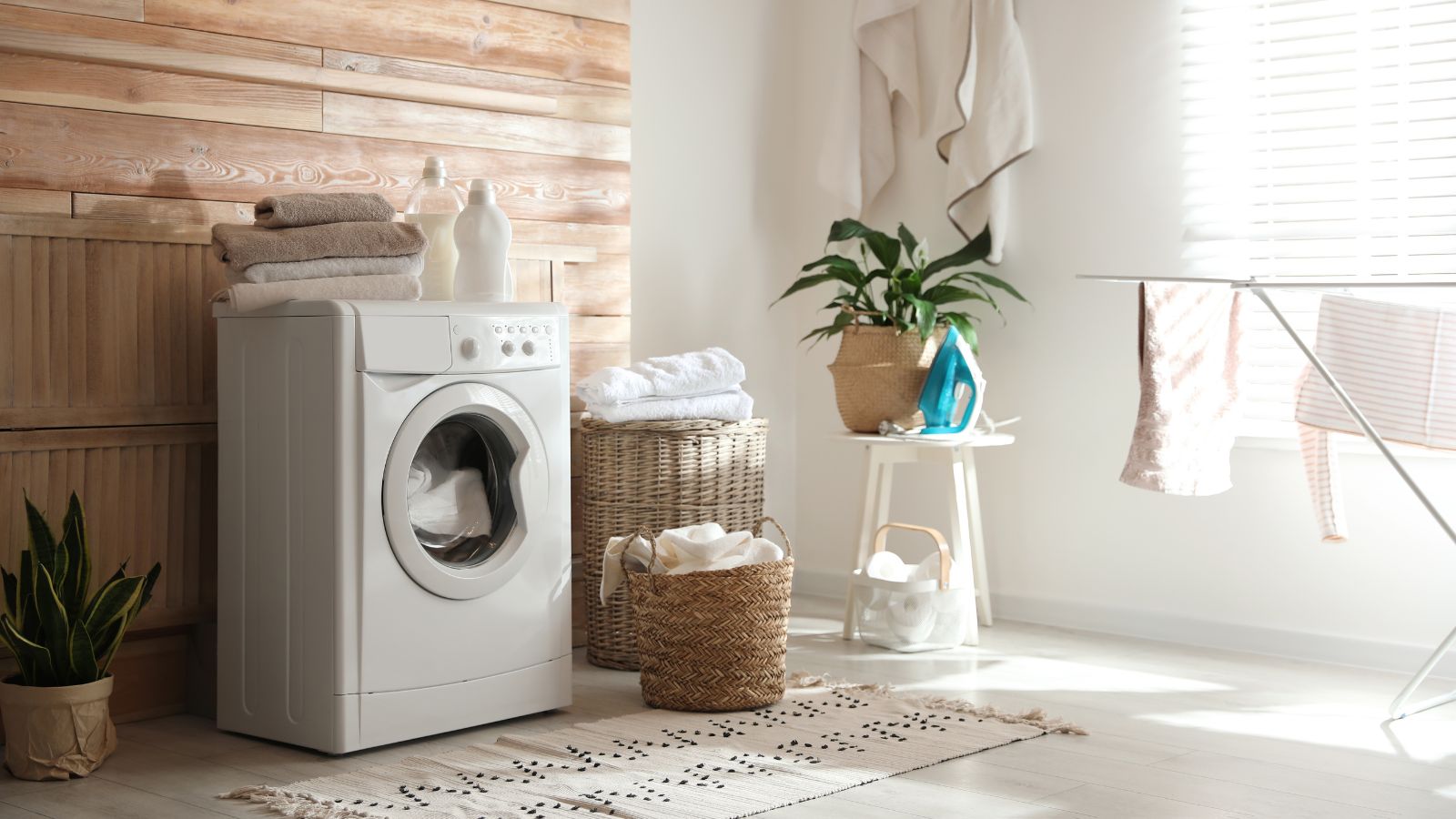 Looking for a natural laundry-softening alternative? I'm a professional cleaner and it's time to ditch synthetic ones for 5 non-toxic softeners that work
Looking for a natural laundry-softening alternative? I'm a professional cleaner and it's time to ditch synthetic ones for 5 non-toxic softeners that workRefresh your laundry routine with these fabric softener alternatives
By Karina Toner Published
-
 Unlock the magical mold-killing and stain-busting superpower of this humble household ingredient that costs just 50 cents
Unlock the magical mold-killing and stain-busting superpower of this humble household ingredient that costs just 50 centsIf you have aspirin in the house, you can use it to banish mold
By Ottilie Blackhall Published
-
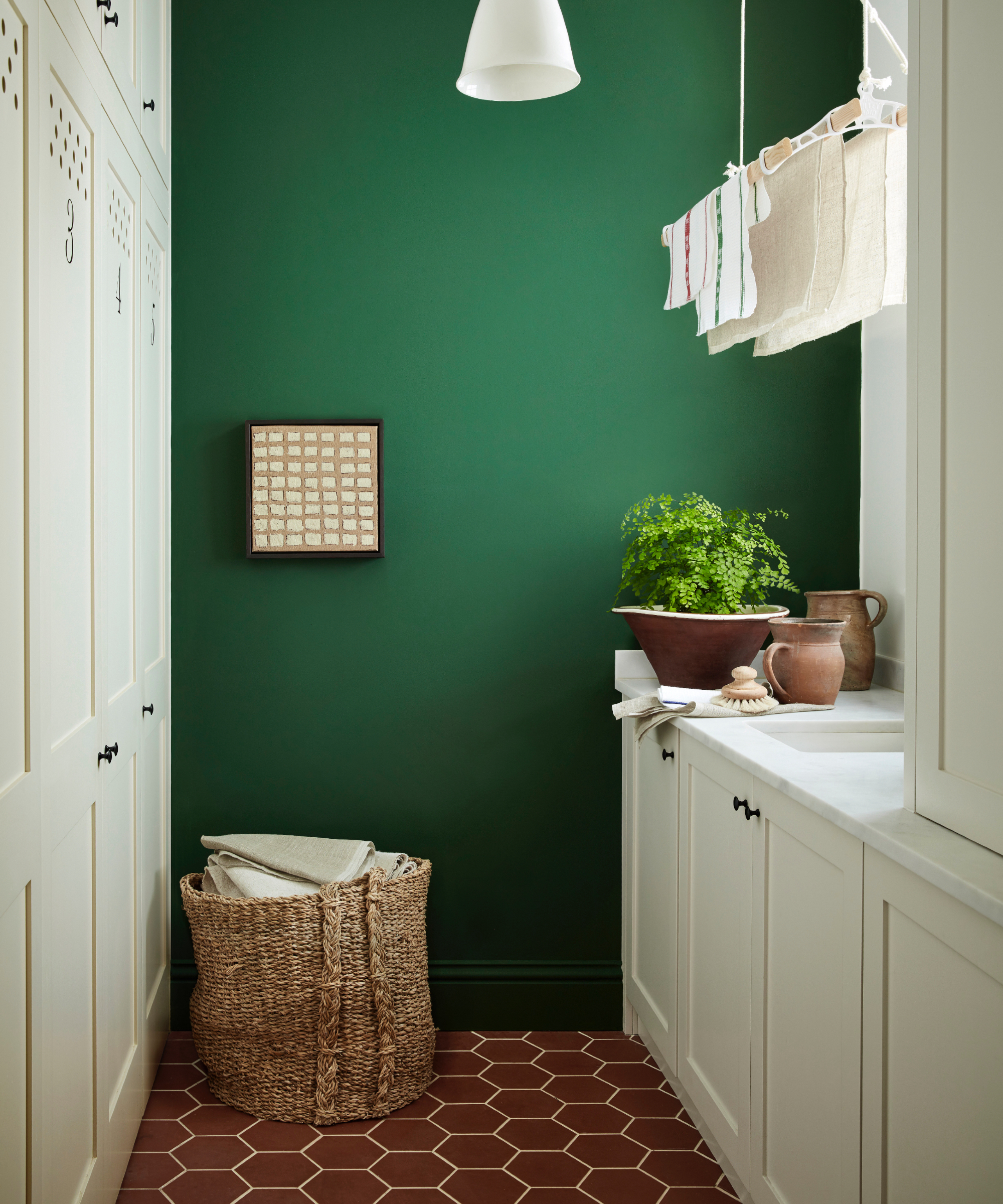 5 warning signs you're using the wrong amount of detergent – avoid greasy residue, stiff fabrics and skin issues with these simple cleaner-approved tips
5 warning signs you're using the wrong amount of detergent – avoid greasy residue, stiff fabrics and skin issues with these simple cleaner-approved tipsPlus, why it's important to get the amount just right
By Ottilie Blackhall Published
-
 6 ways to prevent mold and damp in bedrooms – expert solutions to maintain a safe sleep environment
6 ways to prevent mold and damp in bedrooms – expert solutions to maintain a safe sleep environmentDon't sleep on these six tips, experts urge
By Seraphina Di Mizzurati Published
-
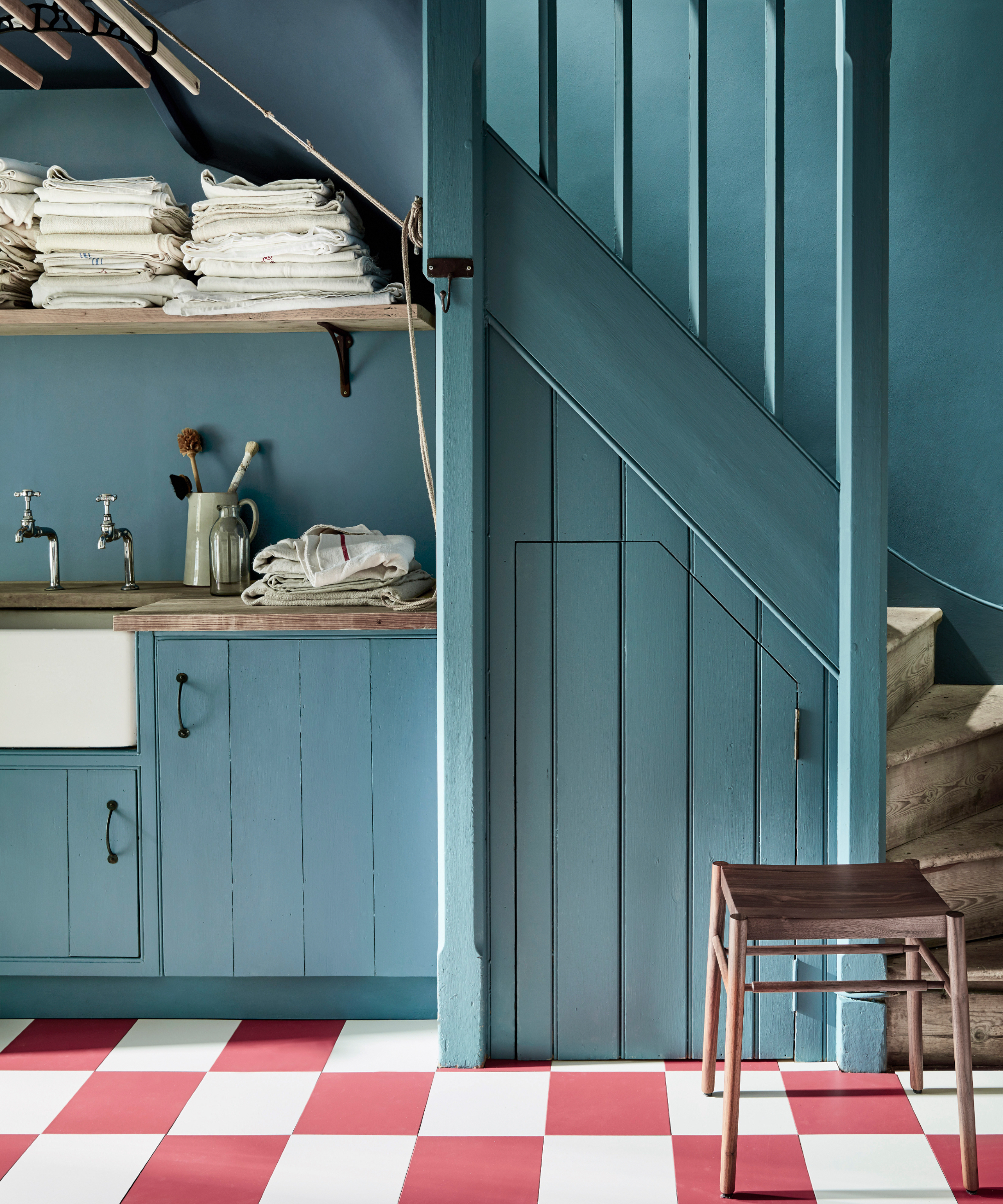 Laundry experts reveal 7 unexpected washing rules you can throw out the window – from separating fabrics to mixing whites and colors
Laundry experts reveal 7 unexpected washing rules you can throw out the window – from separating fabrics to mixing whites and colorsForget everything you thought you knew
By Ottilie Blackhall Published
-
 Using this button on your washing machine will cut your bills and help the planet
Using this button on your washing machine will cut your bills and help the planetA single switch can make a load of difference
By Chiana Dickson Published
-
 Experts reveal the 5 toxic items lurking in your laundry room – and what to swap them with for a healthier routine
Experts reveal the 5 toxic items lurking in your laundry room – and what to swap them with for a healthier routineFor a room focused on cleaning, some of its items can be surprisingly toxic
By Chiana Dickson Published